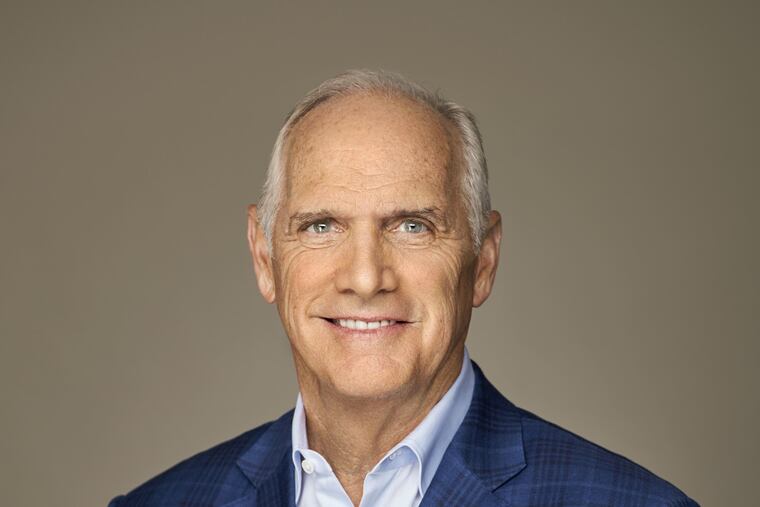PHL COVID-19 Fund has raised more than $8 million to help Philadelphia-area nonprofits
While more than $8 million has been raised, there have been more than 300 applications for those funds.

The PHL COVID-19 Fund, which announced its formation on March 19, has already raised more than $8.25 million in pledges and gifts from regional businesses, foundations, and private donors.
The fund launched with a total of $6.5 million committed, including $3 million from the William Penn Foundation and $500,000 from the City of Philadelphia.
While fund-raising will continue, the next phase — allocating grants to Philadelphia-area nonprofits that are struggling during the coronavirus pandemic — begins this week.
Nonprofit organizations eligible to receive grant money from the PHL COVID-19 Fund include those in Philadelphia, as well as Montgomery, Bucks, Chester, and Delaware Counties in Pennsylvania and Camden and Burlington Counties in South Jersey, that assist vulnerable populations. Fund organizers said distributing the money quickly is a priority as they continue to raise additional funds.
Besides the William Penn Foundation and the city, lead contributors to the fund include the United Way of Greater Philadelphia and Southern New Jersey, the Philadelphia Foundation, and the Lenfest Foundation. A growing list of more than 30 partner contributors is adding to the fund’s bottom line, 100% of which will go directly to local nonprofits.
Bill Golderer, executive director of the local United Way, spent the past week speaking with the leaders of nonprofits that have been hit hard financially due to the coronavirus pandemic.
From communicating with the nonprofits, Golderer said he has received a firsthand sense of how needed extra funding is at this time.
“There are some organizations whose capacity, which is already probably pretty challenged, is now going to be even more kind of constrained given the way this is shaking out with the COVID epidemic,” he said.
Golderer understands how badly the funding is needed.
"We asked all of these organizations to let us know what burden you are carrying as a result of the virus,” Golderer said.
The number of applicants was an indication of how many nonprofits could use the funding.
“We have over 300 applications, and the need is outstripping our pledged funds,” he said. “We will be working hard to continue to enlarge the fund, but I am afraid we will not be able to meet every need.”
At the forefront of this effort is the William Penn Foundation, the largest local funder in the region.
“We consider ourselves a civic leader, and felt obligated to step up and make a significant contribution to the fund to signal that it is important, and hopefully others will support the fund,” said Shawn D. McCaney, William Penn’s executive director.
“We want to be part of something that is bigger than just us. It’s really impressive to see so many individuals and organizations come together to respond to this crisis,” McCaney added in a separate interview about the PHL COVID-19 Fund and other money that the William Penn Foundation has recently approved to help the arts and educational sectors recover.
In addition to the heavy-hitting foundation and businesses that are supporting the PHL COVID-19 Fund, individual donations also have been key to its early success. More than 1,000 individuals have contributed so far.
“That is sizable and a big signal to how the community is committed to helping with this effort,” McCaney said.
Another sign of how much this matters: the speed at which various organizations came together to create the fund.
“As we started talking, we connected with the city and United Way and decided this would be a lot more powerful as a coordinated effort. We were fortunate that we had funds that were authorized just for this occasion,” said Pedro Ramos, president and CEO of the Philadelphia Foundation, which gave an opening $500,000 donation in addition to underwriting PayPal costs associated with individual donations.
Dan Hilferty, president and CEO of Independence Blue Cross, said that when Mayor Jim Kenney called to ask if his company would get involved with the fund, he pledged to match the city’s $500,000 donation.
"The best way to connect with every community is not only through our network of providers, hospital providers, and clinicians, it is also with those organizations that work closely in the communities we serve. And right at the top of the list ... are the not-for-profits,” Hilferty said. “They work on everything from helping us feed people, house people, [... and] making sure that our members have access to health care, access to the best information, and are, frankly, cared for by a safety net of nonprofits. So it was natural for us when the mayor called me and asked if we would be interested.”
In dire times, the United Way’s Golderer said, many more people rely on community organizations to be pillars of strength.
“When things get worse, people tend toward going in the direction of community organizations that are already usually resource-constrained,” Golderer said, adding that nonprofits are rarely provided with extra resources. “They always seem to do more with less.”
For more information on the PHL COVID-19 Fund, visit phlcovid19fund.org.